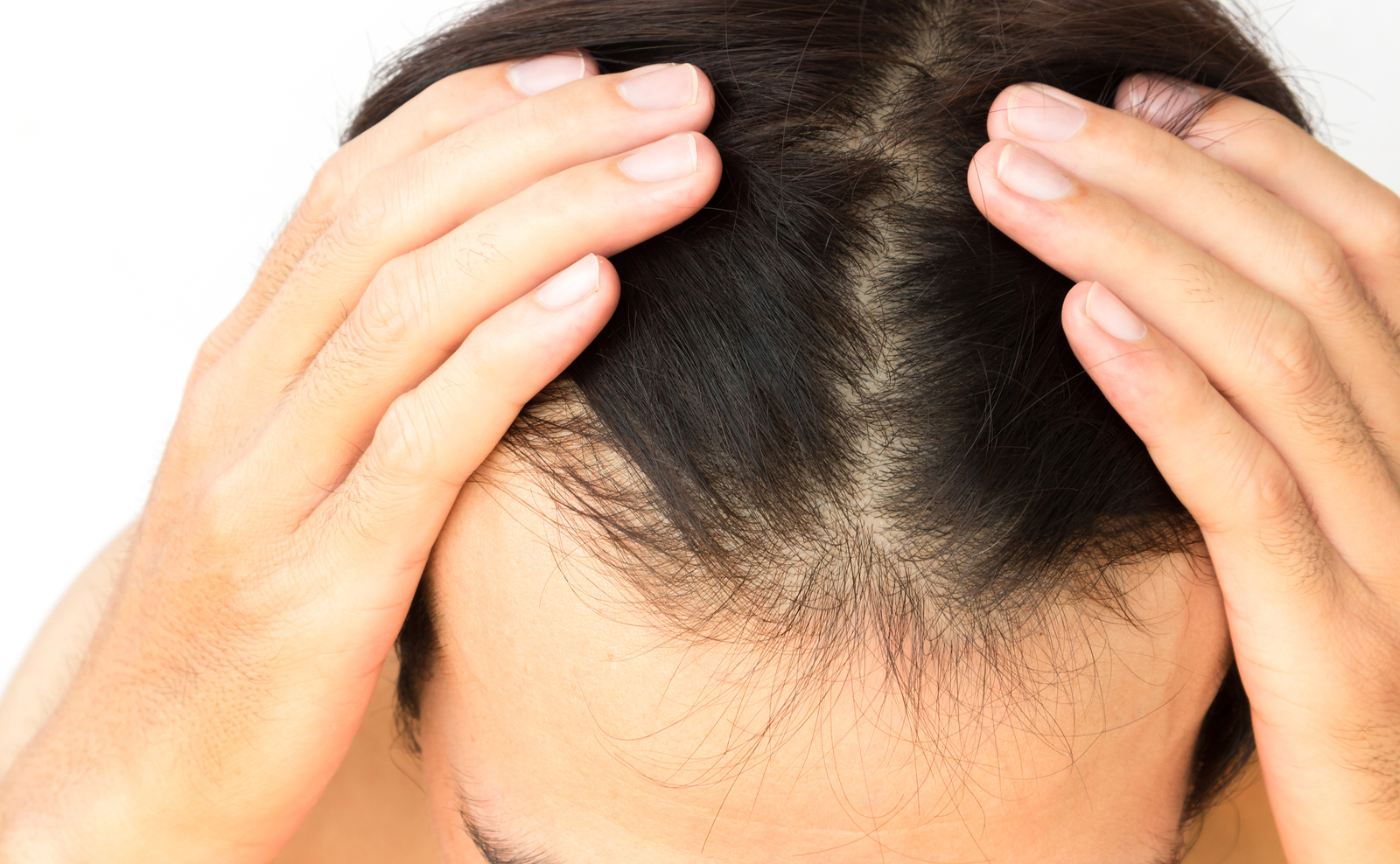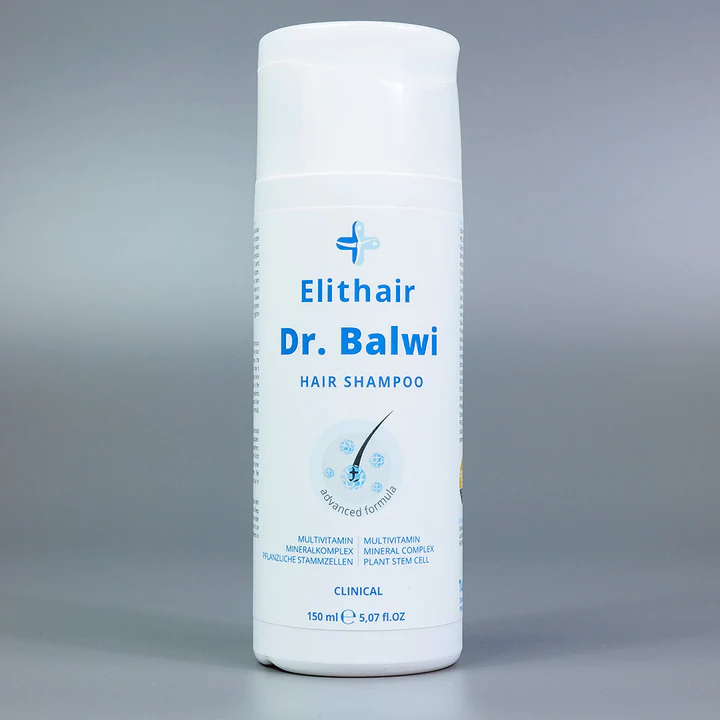
Covid Hair Loss: Causes, Recovery Timeline and Treatment Options
As we continue to understand the long-term effects of Covid-19, one unexpected symptom has gained increasing attention: hair loss. While symptoms like fatigue and loss of smell were widely recognised, many people—celebrity and public alike—have reported unexpected hair shedding weeks after recovery. But why does this happen, and what can you do about it?
Summary
- Physical Triggers Causing Covid Hair Loss
- Emotional Triggers Causing Covid Hair Loss
- Recovery and Treatment for Hair Loss After Covid
- Conclusion
Physical Triggers Causing Covid Hair Loss
Due to the increase in body temperature from contracting a fever as a result of the virus, the body is put in a state of shock as part of physical stresses. As a result of this, telogen effluvium or sudden hair loss can occur. Telogen effluvium is a non-scarring type of hair loss, meaning the hair follicles remain intact and capable of regrowth. Hair shedding typically begins 6–12 weeks after the trigger event.
Here, the body is put in a stressful situation and causes hair that is usually in the growth stage to go into the resting phase instead. This results in an increase in the amount of hair that is shed, from 10% to up to 50%.
While the severity of the hair loss can vary, it is not dependent on the intensity of the virus. Those who experience mild symptoms can end up shedding a large amount of hair and vice versa. As the body is placed under stress, nutrients are diverted to vital organs and hair growth is not positioned as a priority.
Alopecia Areata
Studies have revealed that the virus can lead to another kind of hair loss that is more patchy rather than the straightforward shedding. There is emerging evidence that in some individuals, the immune system may overreact following Covid-19 infection, leading to conditions such as alopecia areata—a patchy, autoimmune form of hair loss.
Thyroid Function
The virus can have hormonal or nutritional impacts on your body, causing an imbalance in regular function.Covid-19 has been associated with subacute thyroiditis in some patients, which may temporarily disrupt hormone levels and lead to hair thinning. Both an underactive and overactive thyroid can cause issues relating to hair loss, so it’s important to speak to a specialist about thyroid function if your hair loss has persisted for six months or longer.
Emotional Triggers Causing Covid Hair Loss
It’s not only physical triggers on the body that can cause hair loss. Due to the pandemic, emotional triggers have also resulted in hair loss from Covid. The cells in the hair follicles are altered at the base, which inhibits the molecules required for the healthy growth of hair. This is because of an increase in male hormone production, which is secreted from the adrenal gland.
The increase in stress can place the hair follicles into the resting phase prematurely. The stress of losing hair can have a compounding effect, causing further hair loss once the first hair shedding occurs.
Hair Loss Without Contracting the Virus
Because of the global pandemic, it was not only those who had contracted the virus who were experiencing hair loss, but also an increase in generalised telogen effluvium. The increase in stress has additionally affected those who haven’t been exposed to Covid. Whether from the isolation of quarantining, losing a job or a loved one, hair loss from this stress has been reported alongside from those who have experienced the illness.
Recovery and Treatment for Hair Loss After Covid
While there has been variations in the onset and recovery from this form of telogen effluvium, it has typically been observed that the shedding occurs more quickly than a regular case. It is often perceived that people will begin to lose hair 3 months after the inciting incident with telogen effluvium. However, studies have shown that people start losing hair from covid between just 45 – 60 days after contracting the virus. This has also had an impact on the recovery time, with reports showing a much faster recuperation of hair in 2-3 months as opposed to the typical 6 months.
Severity of hair loss
Those who are suffering from acute hair loss are advised to monitor the shedding to observe its severity. This can be done simply by brushing the hair for 60 seconds and collecting the hairs to see how many are lost on a routine basis. Over time, you can gather if the shedding is improving or not. Experts have noted that this has also contributed to bettering stress management, which helps to reduce further hair loss.
Even after regrowth occurs, you may notice that the hair does not appear as thick as it was. Since hair grows slowly, it can take up to two years for someone with shoulder-length hair for lost hair to reach that length again. This may be more noticeable in women than men, but it can affect either gender.

Chronic Telogen Effluvium and Long Covid
While not common, in less than 10% of those suffering from telogen effluvium, it can become chronic. If the shedding phase continues for longer than 6 months, it may be cause for further concern. This can last for years and has been observed as a possible symptom for long Covid patients. While the body is still undergoing stress due to sustained illness, hair loss can be seen to continue.
Even if you are experiencing chronic telogen effluvium, all the hair will not fall out, since the proportion of hair loss will not exceed the aforementioned 50%.
Treatment Options
For those with a regular case of telogen effluvium, the hair loss should clear up on its own. Once the body has processed the stress trigger (the virus), new hair will start to grow. It’s important to ensure there are no other issues that could be contributing to the hair loss from Covid, such as a nutrient deficiency or hormone irregularity, so you should consult your doctor if you suspect this to perform tests.
The right hair care products are crucial to supporting your hair as it regrows. Check out our range of products if you are looking for paraben and silicon free solutions for healthy, strong hair.
For those with sustained or chronic telogen effluvium, you may need to look towards medical therapies to help bridge the gap between hair loss and regrowth. Products like minoxidil can be beneficial in encouraging regrowth during this time, as it will only continue as long as the product is in use. If you are struggling with regrowth over a longer period of time, a hair transplant provides a long term solution for permanent hair growth in affected areas.
Conclusion
Hair loss after Covid has been noticed more and more frequently, as studies on the long term effects of the virus have shown. While it will often clear up on its own, there are solutions you can take to aid hair growth or even just support the growth of the new hairs. Our range of products are designed to aid in the regrowth of hair and make it stronger and healthier as well. If you’re concerned about persistent hair loss, then contact one of our experts today to see if you are eligible for a hair transplant.



